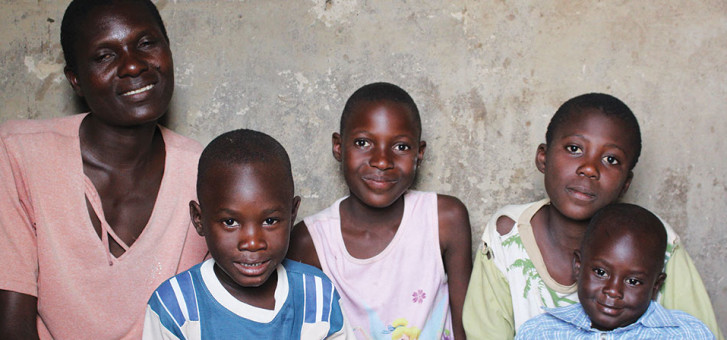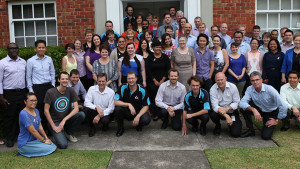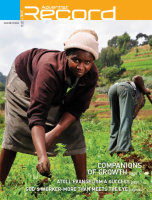The choko vine in our backyard has been there for years. When we moved in, however, the plant was small and weak. The previous tenants didn’t like choko so they did little to encourage it to grow—in fact they actively discouraged it.
My wife has a special love for the much misunderstood fruit and took care of it. She improved the soil, watered it and supported its growth. Naturally it thrived—so much so that just recently my wife brought in a harvest of 10 kilos.
It’s common sense that while some actions help care for and stimulate plant growth, others have the opposite effect. The same is true of human relationships, but often this is far less understood.
Some people cannot see, or choose to look past, the potential of others—they abuse, neglect and take advantage. Much of the challenge of poverty, and particularly for Christians aiming to tackle it, is to counter this destructive attitude—to stand with the poor and vulnerable, to encourage development and growth, and be the active companions people need to thrive.
Solomon clearly recognised the amazing transformations that can occur when people work and grow together. In Ecclesiastes 4:9-10 he writes, “Two are better than one, because they have a good return for their work: if one falls down, his friend can help him up. But pity the man who falls and has no one to help him up!”
Chipo* (pictured above with her children) has experienced both sides of this equation. She had married a loving man who provided for her and their three children but in 2001 tragedy struck—her husband passed away.
Grieving, alone and made increasingly vulnerable by Zimbabwe’s failing economy, Chipo sought refuge with her uncle. Unable to have children with his wife, Chipo’s uncle tried to take advantage of her. Afraid, Chipo and her children fled to her father’s house but quickly discovered her stepmother didn’t want them there either.
“I had nothing to eat or even proper clothes to wear and my children were treated as my stepmother’s slaves,” she said. Tired of the abuse and injustice, Chipo left to find work in a nearby town, but without her protection her children were chased out of their grandfather’s home.
Chipo’s life then took a turn for the better. She fell in love, re-married and her new husband agreed to have her children come to live with them. Sadly, he soon started to drink excessively, withhold money from her, beat her and sleep around. And then she discovered she was HIV positive.
“I felt hopeless. My whole family had abandoned me and the one person who I thought would be there for me, betrayed me. Many times I thought of ending my life but I fought on for my children.”
Then Chipo found and joined ADRA’s Wealth in the Soil project and was provided with the support she needed to persevere.
Along with a crop she can sell and use to feed her family, Chipo gained something of much greater value.
“The garden provided me with a source of social support. I have met people there who have become my real family,” she said. “They supported me when I felt down, when I struggled and when I had nothing to eat.”
Being connected to a caring community has inspired Chipo to work hard and provide for her family. Today, she is also a source of strength and encouragement for others with HIV and provides a helping hand to the elderly.
Both Chipo and the choko plant remind me that no matter how busy I am or how sorry I feel, if I am not actively working together with others to promote growth and provide the conditions people need to thrive, I am not doing what Corinthians 13 calls me to do—and that is to love.
Become a Companion for Growth and help others like Chipo to thrive! Simply complete the form in this Adventist Record, visit <www.adra.org.au/
companionsforgrowth> or call 1800 242 372.
*Name changed for privacy.
Mark Webster is CEO of ADRA Australia.







